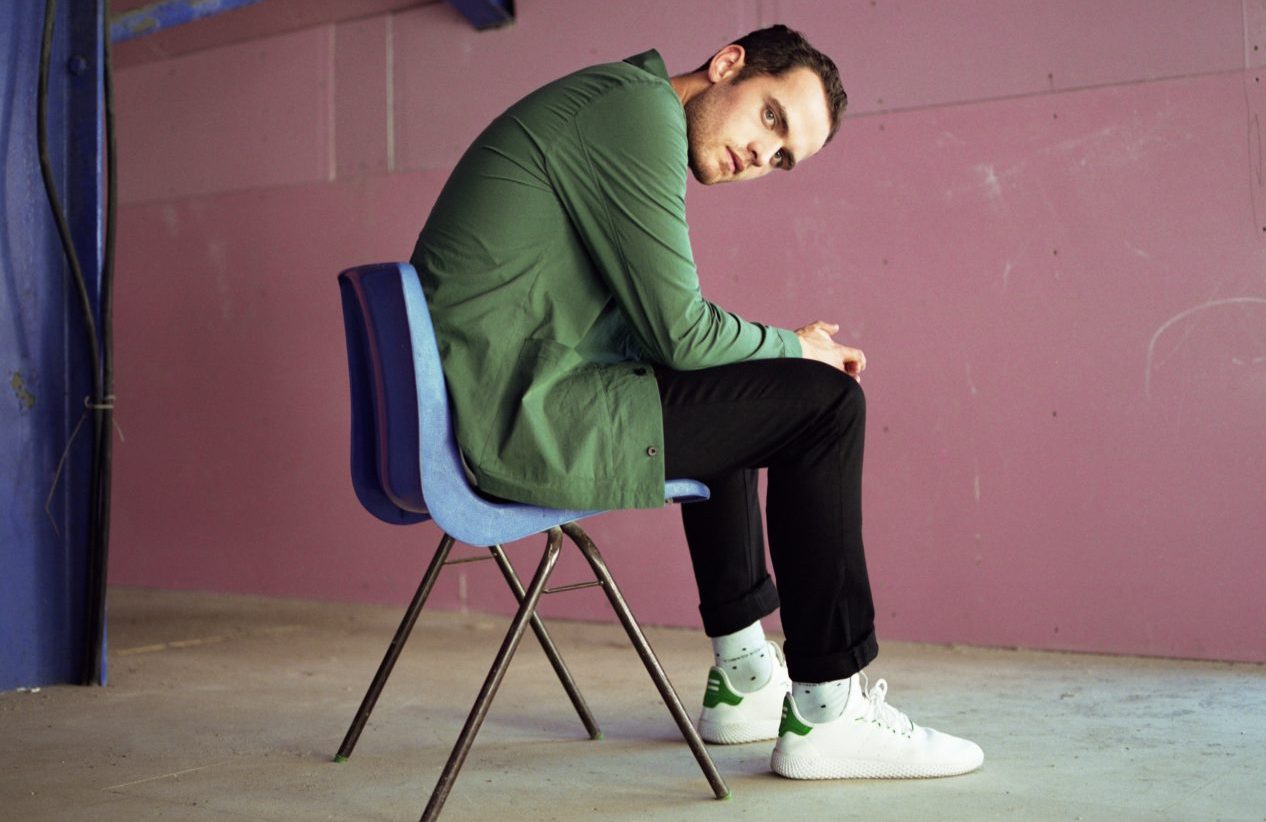On the contrary, Jordan Rakei’s Wallflower is guilty of poetry and atmospheric jazz
It’s a well known story, with a guitar and a dream, a young musician sets off from his, often small town, to try his luck in the Big Smoke. With relative amendments to this template narrative, it may as well be about Jordan Rakei. The 25-year-old, New Zealand born multi instrumentalist, vocalist and producer had ample reason to make the move for London. After making a name for himself in Australia by melting the influences of soul and R&B with the sounds of his native country, a change of environment seemed the best choice for Rakei’s music. Moving away from the familiarity of his home pushed the boundaries of his creative processes but also challenged him on a personal level, evident on the sophomore release.
In essence, that’s what Wallflower is all about. London not only changed Rakei’s approach to his work – the mood of the album is decisively more atmospheric, but exposed the sides of his character not known to him before, with new themes explored throughout. In respect to the sound, it can be seen as an antithesis to his accomplished debut Cloak, the reggae components have disappeared and even the upbeat songs have undertones of sombre introspection. However, what stayed the same is the warm quality of his vocals, which he controls with mature assurance.
…you might go in as a casual listener but soon you’ll find yourself drawn into the layered pieces, trying to figure out what exactly is going on
Rakei sonically portrays the introversion of a wallflower by layering psychedelic and atmospheric elements to base guitar riffs, making the whole experience darker. Equally, the content is darker lyrically and has features of a stream of consciousness, ranging from vague to striking. The 11 track album, although decisively personal, makes for an engaging piece of work – you might go in as a casual listener but soon you’ll find yourself drawn into the layered pieces, trying to figure out what exactly is going on.
Case in point, the album opener ‘Eye To Eye’ has three distinctive parts, it starts acoustically but slowly builds the layers the further it goes, by adding instrumentation and changing the vocal delivery. This song serves as a representation of the whole album, as it offers both the acoustic, the atmospheric and the soul/jazz elements of the work. With the piano decrescendo, Rakei achieves a seamless shift into ‘May’, showing the dedication to keep the mood thread in tact throughout his work. Exploring the emotions followed by the loss of his grandmother, the percussions and husky vocals add a sense of suspense and unease, culminating in the isolated “you left, without a chance to say goodbye, without a chance to say goodbye at all”.
What follows are three singles, chosen wisely, since they are the backbone of Wallflower. ‘Sorceress’ reintroduces the classic Rakei and his warm jazzy delivery but with added brooding veneer, crooning over the pulling forces of introversion and anxiety, the sorceress isn’t, as per pop sensibilities, a girl he is enchanted by. ‘Nerve’, a serious contender for a personal favourite, rhythmically demands feet to tap along and heads to nod. The swing doesn’t take away from the examination of self, questioning “how can I find a reason to love you when I don’t love myself?”. ‘Goodbye’ shows Rakei’s determination to go beyond as the almost orchestral opening proves the grand design for his music. Drums take over to lead the ruminations on a relationship that started at uneven grounds, the investment of emotion that wasn’t reciprocated.
‘Clues Blues’ introduces another segment of the album, the mood from there onwards is more enigmatic, the production more ambient and psychedelic. The song is once more a layered piece, the beginning reminiscent of James Blake. The trumpets in the second part provide a degree of sultriness and carry the song into a more upbeat realm. As the album comes to a close, the impressions seem to settle. ‘Lucid’ stands out, providing a gospel like funky atmosphere, Rakei going deeper with his vocal interpretation, almost showing all the range of his voice, vulnerable at the same time: “the light shines on me too much”. ‘Hiding Place’ and ‘Wallflower’ conclude the album on a sombre note, as if honing the essence of introversion. Notably, the title track holds the only feature of the album, Kaya Thomas-Dyke, whose falsetto matches Rakei’s in almost cathartic repetition of the line “I was just a wallflower”.
Rakei continually asserts his self-awareness and, to a degree, the album can be seen as a study of his introverted persona
From statements like “mark my words, I say I’m guilty of no poetry” on ‘Nerve’ to the idea of being “still trapped by the cages of my lips” on ‘Wallflower’, Rakei continually asserts his self-awareness and, to a degree, the album can be seen as a study of his introverted persona. Both statements, however, are utterly undermined by the whole project. Lyrically, he exceeds expectations with poignancy and his thoughts, seemingly detached, come together as a coherent entity. Therefore, poetry seems the apt word to describe the songs on Wallflower. Secondly, from the musical arrangements that mirror the lyrics (true vice versa), a confessional tone is present. Being trapped is expressed, surely, but isn’t the album the method of finally breaking away from that enclosure? Go and listen to Wallflower to find the answer for yourself but if you’re not into that, it serves as background music for dinner parties as well as any old soul/jazz record.

Comments (2)
Completely agree Kyle! Definitely one to watch!
Big fan of the jazzy syncopation and dissonance that manages to creep into this album, it marries well with the overall theme. I will now be keeping a close eye on Jordan Rakei. Thanks!